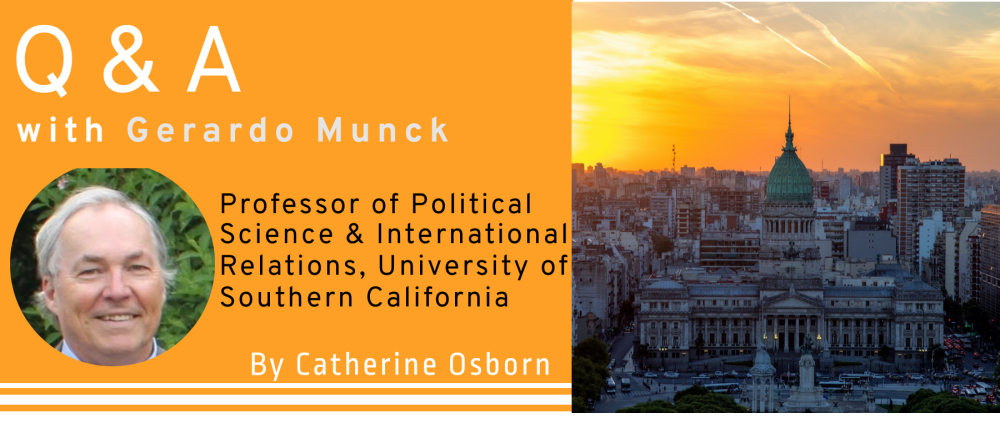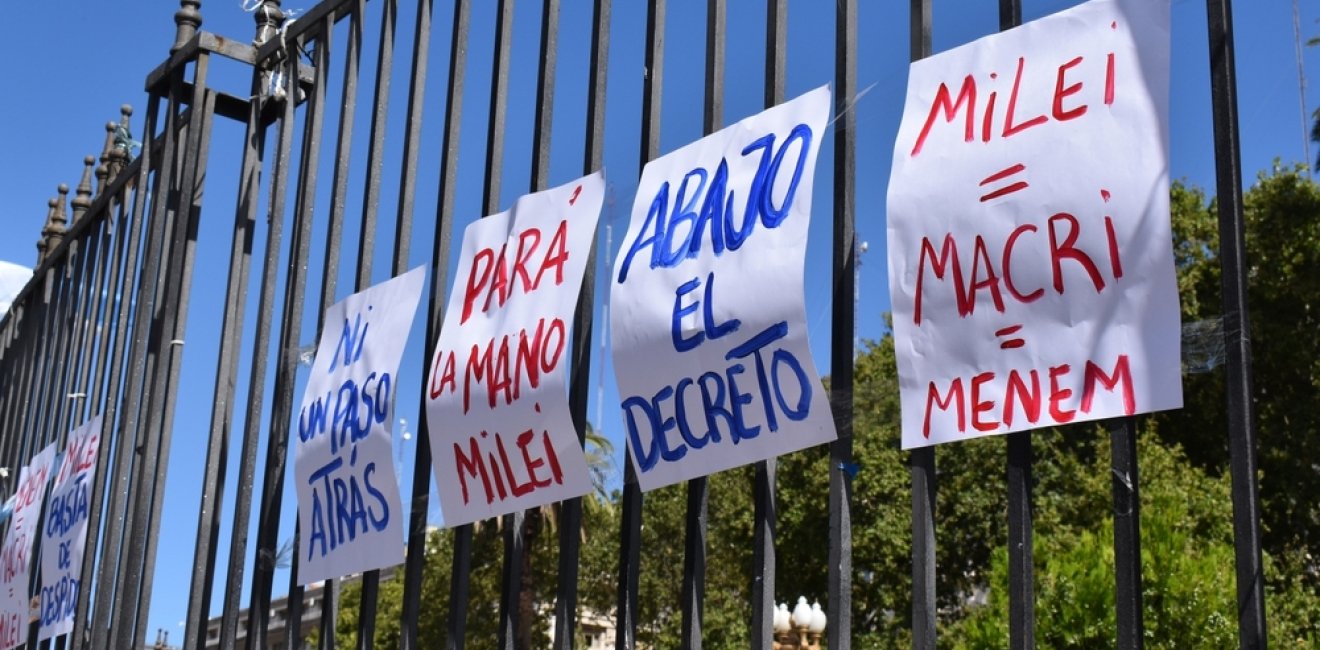
A blog of the Latin America Program

Intro text: Ahead of President Javier Milei’s December election in Argentina, several current and former presidents in Latin America endorsed him or his Peronist rival, Sergio Massa. That included President Luiz Inácio Lula da Silva of Brazil, Argentina’s largest trade partner, who later skipped Milei’s inauguration. Neutrality in foreign elections used to be sacrosanct. After all, picking the wrong horse could mean poisoning an important relationship even before a counterpart’s first day in office. Or it could backfire, as the United States learned in Argentina’s 1946 election, when the US ambassador’s political commentary helped elect Juan Domingo Perón. What’s driving this behavior? What effect is it having on regional politics?
Former presidents in the region who endorsed Milei included Mexico’s Felipe Calderón, Colombia’s Iván Duque, and Chile’s Sebastián Piñera, while several current leaders, including Lula, spoke against Milei’s candidacy without using his name. Is there precedent for these kinds of comments?
Governments are active throughout the world through various agencies, as are political parties, some of which have branches around the world. But there’s a difference between acting in support of an electoral process and weighing in to favor a specific outcome. If we talk about Latin America, I don’t know exactly where it started, but certainly during the “pink tide,” at the beginning of the century, leftist leaders tried to promote leftist leaders in other countries. Then as now, Lula considered that his regional project would be helped if leaders that shared a similar ideology were in power. During the first two administrations of Lula, his government sent money to fund political campaigns. In the recent election in Argentina, Lula sent some of his key campaign advisers to work with Massa and issued clear messages that he did not want Milei to win.
Whether it’s a public endorsement or the behind-the-scenes funneling of consultants or money, it would seem to clash with something that is often touted as a regional value, “no intervencionismo,” or nonintervention in other countries’ internal affairs. Can you discuss the origins of that principle in Latin America and its relevance today?
The right of self-determination is recognized in international law and by the United Nations. It’s partly linked with the process of decolonization. In Latin America, the invocation of the right of self-determination is commonly meant as a message to the United States, given how the United States intervened in Latin America in the early decades of the 20th century and during the Cold War. But that principle is practically not applied in relations among different countries in the region. It’s seen as different, and you could say it’s a contradiction. So the principle is invoked opportunistically, but there’s something to it. Latin Americans are trying to break with the tradition of outside powers calling the shots.
Has a strong emphasis on supporting leaders who are friendly to their own political projects hampered ambitions to build regional unity in Latin America?
We could talk about the Community of Latin American and Caribbean States and the Pacific Alliance. CELAC was seen as having a certain ideology. While you have left-wing organizations like CELAC, you had conservatives form the Pacific Alliance. This ideological component weakens the organizations. For example, Presidents Andrés Manuel López Obrador of Mexico and Gustavo Petro of Colombia do not share the more conservative vision of the founders of the Pacific Alliance, so the continuity of the organization is imperiled.
Should we be concerned if multilateralism in Latin America remains a sueño por cumplir? Do leaders have to get along in the region? After all, the health of democracy is determined at the national level, no?
I’m concerned about the consensus on democracy within Latin America. If you look at the post-dictatorship period in Latin America, it was the Latin Americans that worked through the Organization of American States to shape the current regional democracy regime. An important step was taken in a meeting of the OAS in Chile in 1991, right after Augusto Pinochet stepped down. Another key step was taken in Peru, immediately after the end of Alberto Fujimori’s rule, with the signing of the Inter-American Democratic Charter. In these important initiatives, Latin Americans who had experienced dictatorship started to create procedures, rules, and mechanisms to defend democracy. Yet now, the consensus regarding the value of democracy that led Latin Americans to build these pro-democracy mechanisms has been somewhat weakened.
One of the new trends in the region is the rise of leaders on the far right. Some of their statements indicate that they are not fully committed to democracy. But since leaders on the left have not condemned the lack of democracy in Cuba, Venezuela, and Nicaragua, there is a problem: Is the left going to be in a position to criticize the far right’s undemocratic actions? That is, if you have not been willing to criticize Nicolás Maduro, it looks opportunistic if you criticize Jair Bolsonaro or Milei for their lack of commitment to democracy. For that reason, reinforcing a consensus about democracy that spans the political spectrum is an urgent priority for Latin America.
Author

Independent journalist, Writer of Foreign Policy’s Latin America Brief

Latin America Program
The Wilson Center’s prestigious Latin America Program provides non-partisan expertise to a broad community of decision makers in the United States and Latin America on critical policy issues facing the Hemisphere. The Program provides insightful and actionable research for policymakers, private sector leaders, journalists, and public intellectuals in the United States and Latin America. To bridge the gap between scholarship and policy action, it fosters new inquiry, sponsors high-level public and private meetings among multiple stakeholders, and explores policy options to improve outcomes for citizens throughout the Americas. Drawing on the Wilson Center’s strength as the nation’s key non-partisan policy forum, the Program serves as a trusted source of analysis and a vital point of contact between the worlds of scholarship and action. Read more


Argentina Project
The Argentina Project is the premier institution for policy-relevant research on politics and economics in Argentina. Read more

Explore More in Weekly Asado
Browse Weekly Asado
Dengue Haunts South America’s Summers

Lessons from Costa Rica’s Economic Transformation

Women and Latin America’s Digital Revolution

